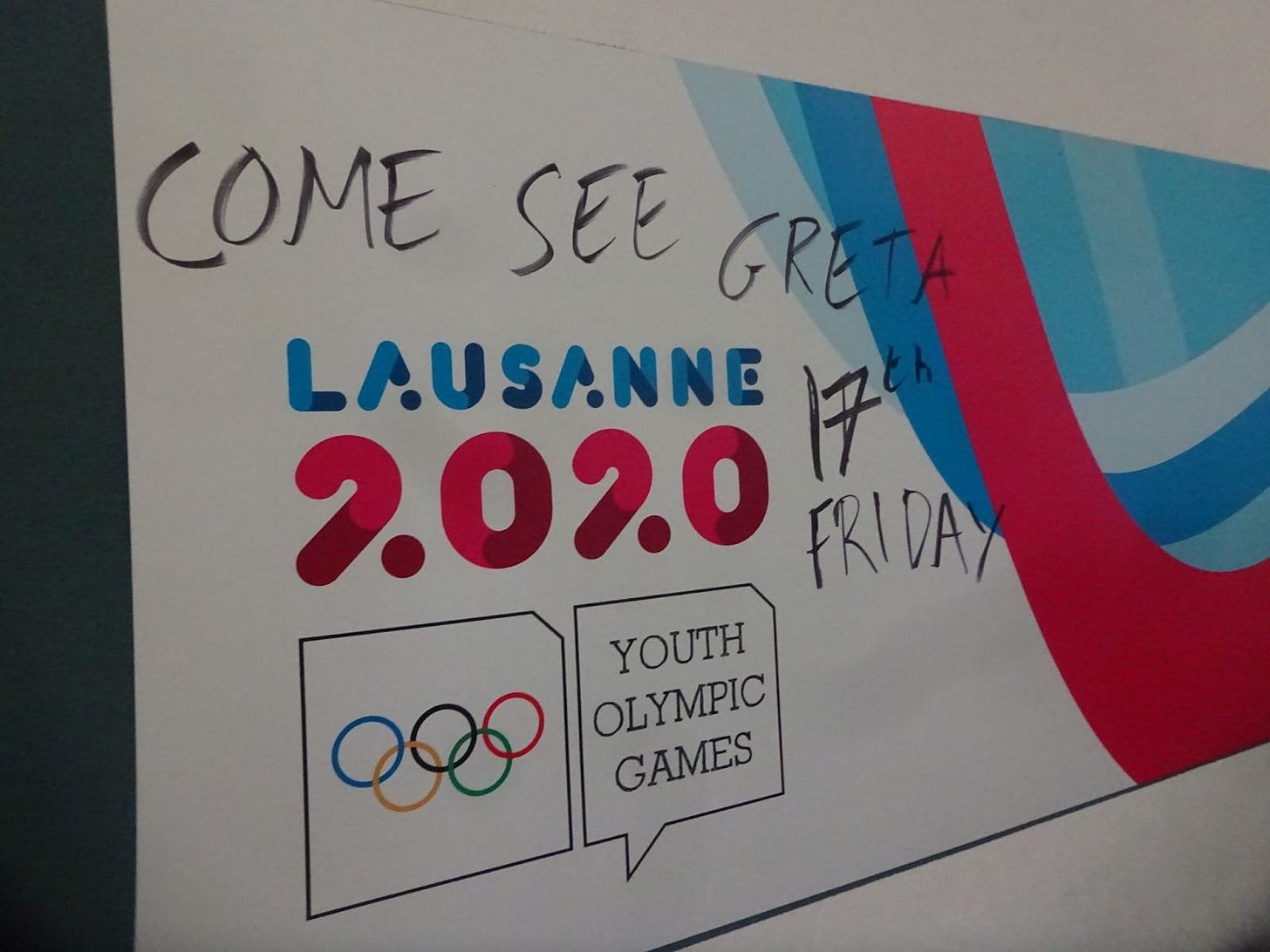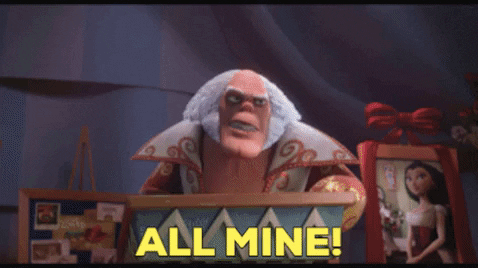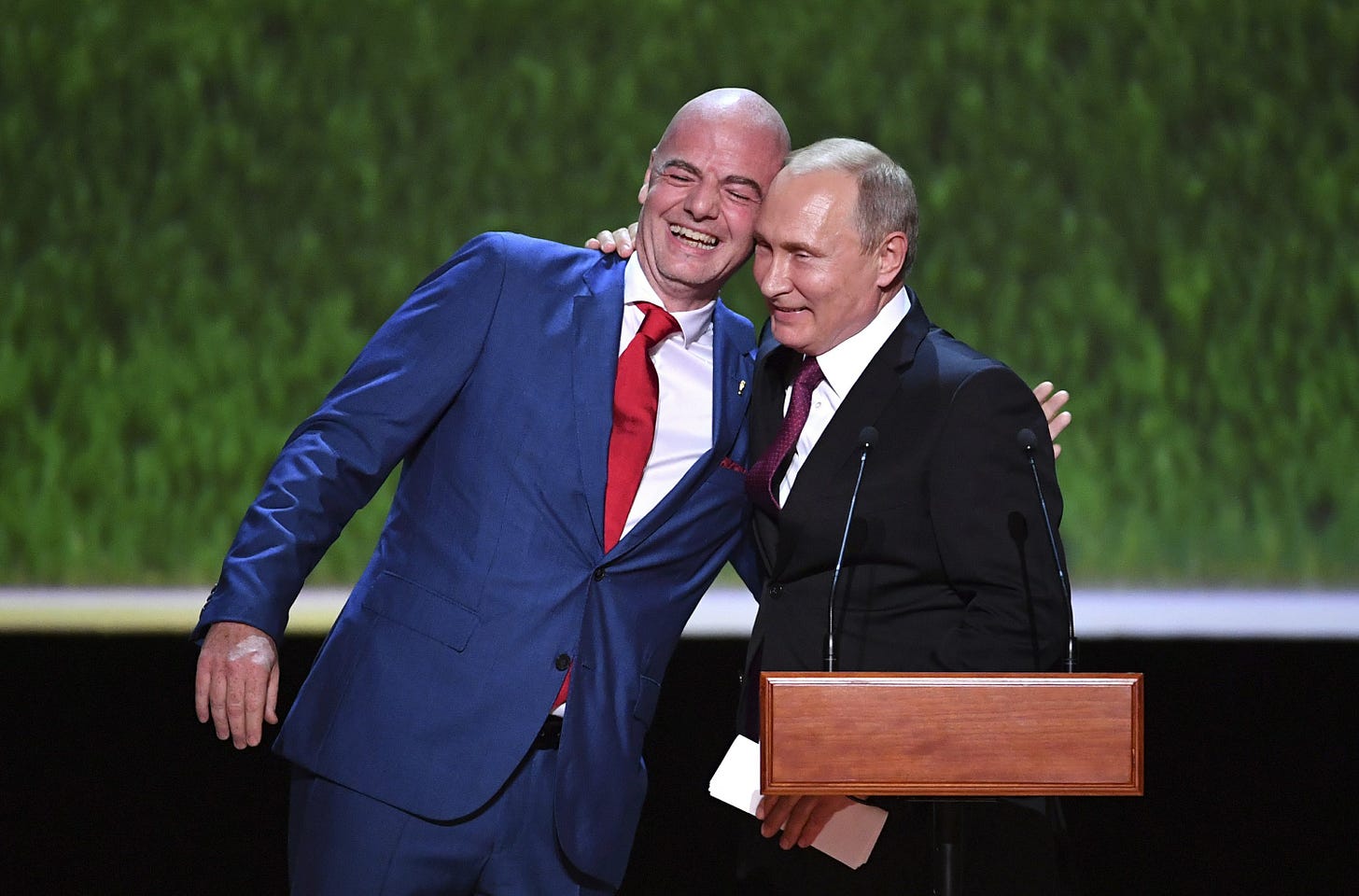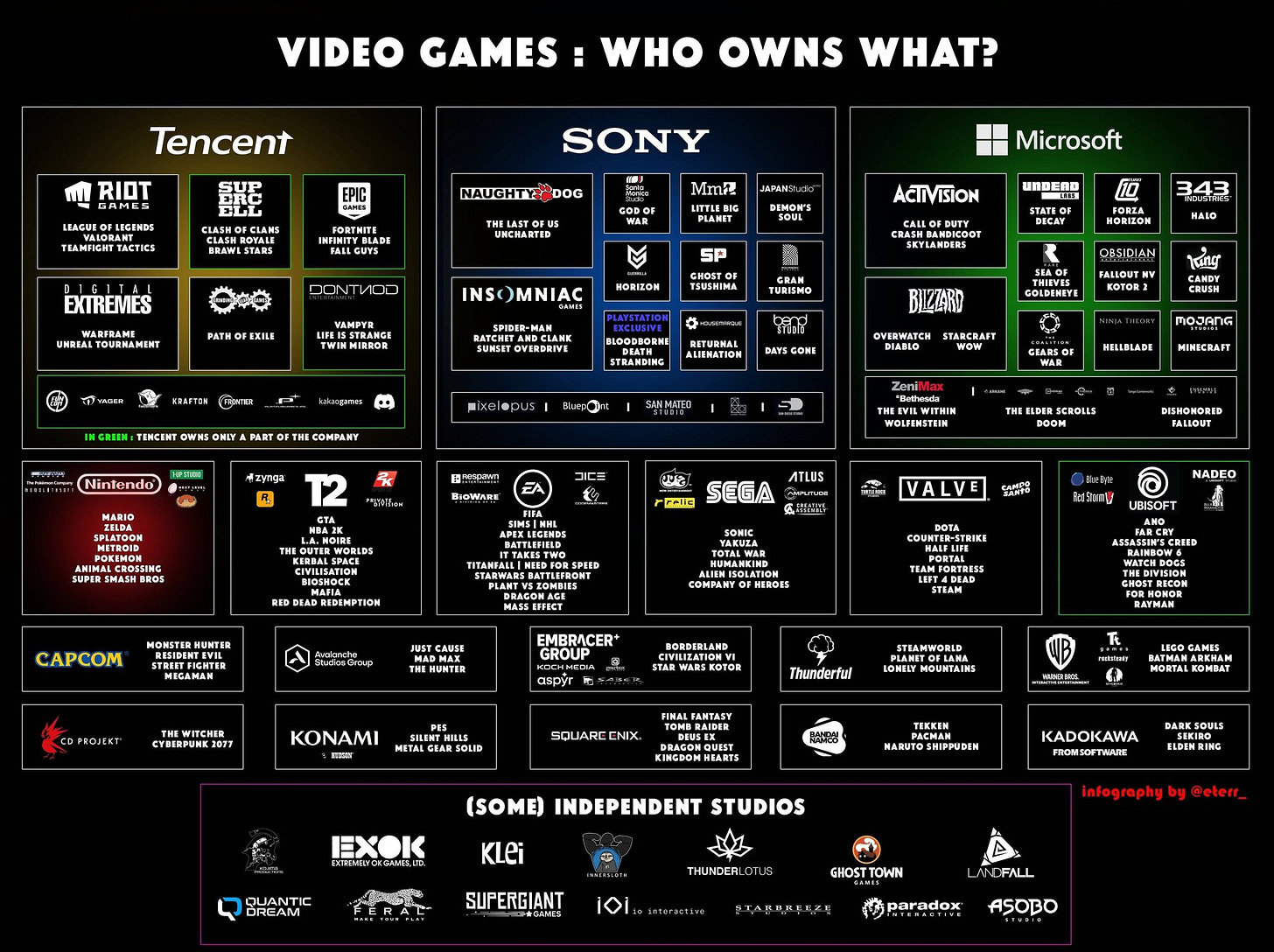Four World Cup 2026 subplots; When FIFA met a democracy; Web3 culture wars; Luddites revisited; Gaming IP v Sport IP; 2022, year of the M&A bloodbath; Why Greta's watching Gianni; The Bundle
The newsletter of the podcast
Leading the sports business conversation...every week.
Get in touch with UP co-founder Sean Singleton for information about upcoming opportunities to collaborate with Unofficial Partner across podcasts, thought leadership editorial, shared IP and invite-only private room events.
2026 and all that
There’s a lot riding on 2026 FIFA World Cup in the US.
It’s often sold as the moment America finally gets it: When the game catches fire as a professional entertainment product, justifying the investment money flowing in to the MLS and the accompanying franchise valuations, which don’t seem to make sense unless something transformative is about to happen.
So 2026 as catalyst.
No pressure.
But as ever when it comes to FIFA, there are subplots…
Subplot 1 - Can FIFA really do it all?
We still don’t know where the games will take place and patience is wearing thin among the 17 US cities that have submitted bids to host matches in 2026.
Site visits have been completed, small print pored over. Expensive demands have been made, from the quality of turf to policing and security through to Human Rights promises.
And still they wait. It was going to be last year. Now a date in Q2 is the next deadline for announcements. Yes, COVID, but not only COVID.
When it comes to organising and running a World Cup, 2026 is the first time FIFA has taken everything in-house.
This scraps the role of the local organising committee - think London 2012 without LOCOG, Seb Coe, Paul Deighton etc etc.
It’s a money thing. Spoiler: FIFA wants more of it.
Gianni Infantino wants to keep more money and more control in Zurich. A look at the cost sheet for previous World Cups and you see the LOC expenses on the top line.
Any delays - the city hosting decision is a pretty big one tbf - brings accusations as to bandwidth and focus at the centre, and whether Infantino underestimated what taking it all inhouse means in practice.
Some context to that decision here.
Irony alert: Infantino’s centralising vision borrows from his alma mater UEFA’s running of the Champions League, which has long been admired for the consistency and quality of it's on ground operations. The ironic bit is that work has been done by TEAM Marketing since the UCL’s inception and UEFA has just put their role out to tender (see previous UP letter).
Subplot 2 - Does FIFA prefer dictators or democracies?
By the time 2026 comes around, it will be 12 years since the World Cup has been played in a fully functioning democracy.
Say what you like about Vladimir Putin…but you didn’t hear much whining from the mayor of Kaliningrad when it came to meeting the cost of the FIFA Exco’s various hospitality peccadilloes.
The Russian president was chair of the 2018 World Cup LOC and was very keen to make the event work as a PR vehicle for Mother Russia.
Here he is talking to the leaders of Russia’s host cities. You’ll notice a marked absence of what the HR department calls soft skills.
Likewise, Qatar 2022 has been - how do we put it? - another win for ‘top down’ management style.
Subplot 3 - Saving the planet, one massive football tournament at a time
The talk of biennial World Cups has overshadowed Infantino’s other big expansion plan.
For the first time there will be 48 teams at the WC2026, up from 32: more cities, more journeys, more games, more flights, more pressure on infrastructure…all at a time when major events are supposed to be doing their bit for the planet.
The eco impact of the expansion is under researched. What has been done reveals what we already suspect.
The quest towards environmental sustainability in sports is often hampered by the decisions made by the organizers of sporting events and the way in which sporting events are managed (Pereira et al., 2019). This includes institutional decisions to expand sporting events due to their growing popularity and increasing profits from media broadcasts.
Let’s just say, Greta will be watching.

Subplot 4 - Putin was a pushover compared to the NFL owners
After 12 years, the current US city hosting process can be seen as the start of an extended getting to know you period between FIFA and the irritating messiness of the free market.
It gets worse. Some of the US city bids are predicated on hosting games at the new generation of uber stadia, owned and operated by everyone’s favourite libertarian children of Ayn Rand, the NFL franchise owners.


What’s in it for me, again?
So….the World Cup comes to our town, uses our stadium for months, demanding different turf and wider pitches, costing millions in adaptations and opportunity cost…and we pay them millions for the privilege?
The new centralised approach further loads the host city negotiation strongly in the governing body’s favour.
And the current delays are due in part to push back from the cities, who baulk at how little commercial inventory they have left to sell in the local market to make back some of the millions they’ve promised to pay FIFA to host.
This is always the dance: A fan park here, a VIP seat allocation there, maybe a grassroots soccer initiative, sponsored by a local business?
The broader implications of FIFA’s new model was described to me by one insider:
There should be efficiencies on paper since you’re removing the traditional LOC, and FIFA can utilize more best practice systems. But the reality is that not being ‘local’ and trying to drop in all expertise from the mothership has drawbacks and one misstep or bottleneck can cost a lot of time and money. Savings potential yes, but part of that equation is determined by how much of the costs FIFA can force onto the local host cities and stadiums…here’s where interests are not naturally aligned. In the old model, the LOC (US Soccer) appreciates the value of having good relationships with cities since they will do business with them long after a World Cup. In the new model, with FIFA calling all the shots, this is much less the case, since it’s doubtful FIFA will be coming back to these cities anytime soon.
One to watch.
UP Coming: we’re talking about FIFA’s new sponsorship model with Ricardo Fort and Shaun Whatling, out soon.
Hear also: Following news that Visa has signed ‘the biggest deal in women’s football’, listen to former VP of Marketing Stephen Day go deep on the strategy behind the move, on The Buy Side (UP126).
If you only watch one two hour Web3 explainer, I implore you to make it this one
Finance and Tech: Both complicated, both purposely opaque, both arrogant and both deeply selfish. A match made in hell.
What can go wrong?
Reframing the Luddites
The sports biz web3 culture war positions sceptics as Luddites.
This misunderstands history.

Nice new niche newsletter: I’m liking Pet Berisha’s Sporting Crypto substack.
Sport is a bit player in the looming M&A bloodbath
Gaming IP is where the game is.
That’s the summary from The Bundle (UP220) this week, part of which was a conversation about why game brands are so valuable when set against sport or even entertainment IP.
Murray Barnett: If you look at Netflix - literally just look at their top 10 programmes or what's currently trending - at least half of it is always content that they've bought in. And that must be scaring the shit out of them.
That's why they continue to invest billions in their original content, because then they own it. And you translate into that into the sports world. And I know this from ESPN in the UK and having been involved in other sports channels: the moment you acquire content, you spend your whole time worrying about what you're going to do when you don't have it anymore.
Because you knew you never own it. So the content renting business is a horrible business to be in, if you're looking at it from an investment model perspective.
If you are investing billions of dollars in anything, of course you're going to invest in something in which you own the IP.
And that's why Bob Iger (former head of Disney) went and bought Marvel rather than doubling down on MLB or renewing with NASCAR.
For readers with a few billion tucked away, here’s an up to date graphic of the gaming IP market.
UP Coming
Tomorrow’s podcast: the sports business in China between Beijing 2008 and Beijing 2022.
Enjoy this newsletter? Tell your friends
Subscribe to the Unofficial Partner podcast.
Help us game the Substack algorithm by liking this newsletter and spread the word on social media.
Follow Richard Gillis @UnffclPrtnr and Sean Singleton @PaulPingles
Read over 100 gushing five star reviews for UP on Apple Podcasts - click the link to add yours.







